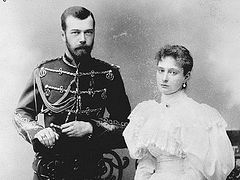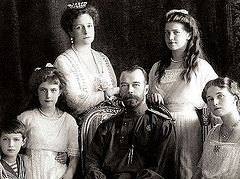Madrid, September 18, 2020
While Twitter users have launched the hashtags #HandsOffRussianHistory and #HandsOffAnastasia against the comical portrayal of the Royal Martyr Grand Duchess Anastasia Romanov in the film Anastasia: Once Upon a Time that came out earlier this year, the House of Romanov has offered its own evaluation.
The Russian Imperial House also considers the irreverent portrayal of the Grand Duchess offensive but doesn’t consider it necessary to ban such depictions or sue their creators, Alexander Zakatov, the director of the office of the Head of the Russian Imperial House told RIA-Novosti today.
Amazon describes the plot of the film: “Rasputin helps Anastasia escape Lenin’s villainous plot through a time travel portal. Landing in Madison, USA, in 1988, Anastasia is befriended by a teenage girl, Megan while hiding from Rasputin who bound by an evil spell is out to capture her.”
Twitter users have expressed anger and disappointment with the film’s mishandling of such a tragic moment in history. Many have pointed to a scene where Anastasia eats spaghetti with her hands as if she had an uncultured upbringing as one example of the abuse of her memory.
“If they display any saint in a comical and a deliberately mocking way, this is disgusting. Such an image is offensive to the memory of the saints and the people who venerate them. Grand Duchess Anastasia is like a family member for many. Believers ask for her intercessions and pray to her,” Zakatov said.
The Church does not prohibit humor, and Christianity is not a dark religion, Zakatov explained, noting that even the lives of the saints contain jokes and humorous situations. “When this is done with love and kindness, there is nothing wrong, but if the bright image of a person is desecrated for public amusement—this is disgusting,” said the representative of the Imperial House.
“It is sad that someone would think of joking about the memory of martyred children. Even in soviet times, people stopped before the fate of the Grand Duchess; no one thought of portraying them in a comic form,” Zakatov added.
“From the point of view of the Imperial House, trying to ban or go to court, as in the case of the film Matilda and other similar pictures, means creating free advertising for useless works that will quickly be forgotten. You can only fight this with a boycott. After all, the creators of such works often expect that there will be people who will be offended and that this will be discussed and attract attention to these works,” the Romanov representative concluded.
The hashtags about the film are currently trending, and it is being discussed on Twitter:
We support the hashtags #HandsOffAnastasia#HandsOffRussianHistory Retweet if you also think that "Anastasia: Once Upon a Time" is a tasteless stereotyped take on Russia's national tragedy! We will be happy to recommend proper books and films which tell the Romanovs' story pic.twitter.com/9trHsdAKdg
— Русское наследие (@RusHeritageUK) September 17, 2020
Anastasia Romanov was executed at only 17 years old. She was shot and stabbed to death alongside her family. Her life was not a comedy, it was a tragedy. Let's get #HandsOffAnastasia trending, please. pic.twitter.com/jp498LaAR3
— Pocket History Plus (@plus_history) September 17, 2020




